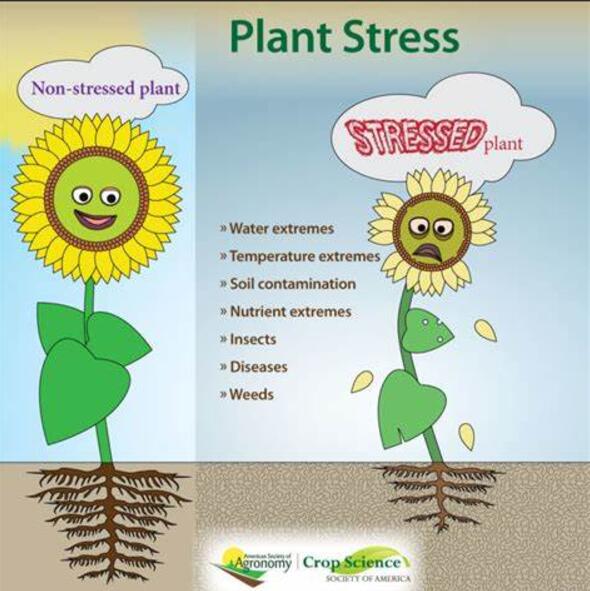Unraveling the nano-biochar mediated regulation of heavy metal stress tolerance for sustaining plant health
IF 6.8
Q1 PLANT SCIENCES
引用次数: 0
Abstract
Heavy metal (HM) toxicity of agricultural soils poses a major risk to plant health, human life, and global food chain. Crop output and health are negatively impacted when HM levels in agricultural soils reach hazardous points. The nano-biochar (nano-BC) mediated stress tolerance has attracted growing scientific interest because biochar has the potential to be a novel and sustainable solution that may be actively included into the development of sustainable agriculture and food production. At present, biochar is extensively employed as a powerful tool to enhance sustainable agriculture with minimal impact on ecosystems and the environment. Nano-BC offers improved surface area, adsorption and mobility properties in soil compared to traditional fertilizers. Furthermore, nano-BC may prove to be the most practical substitute for traditional waste management techniques because of its affordability, sustainability, and environmental friendliness. In this review, we examine the application of nano-BC in the regulation of HM stress tolerance for improving plant growth and development. We focus on the impact of HMs impact on crop productivity, nano-BC amendments, their application, and production. The article also explores the nano-BC risk and toxicity. Through the perspective of multidisciplinary research, this work highlights the significance of nano-BC as cutting-edge tools in the field of agriculture, igniting a paradigm shift toward sustainable and stress-resilient farming systems.
揭示纳米生物炭介导的重金属胁迫耐受性调控,维持植物健康
农业土壤中的重金属 (HM) 毒性对植物健康、人类生命和全球食物链构成重大风险。当农业土壤中的重金属含量达到危险点时,作物的产量和健康就会受到负面影响。纳米生物炭(nano-BC)介导的胁迫耐受性引起了科学界越来越多的兴趣,因为生物炭有可能成为一种新颖的可持续解决方案,积极地融入可持续农业和粮食生产的发展中。目前,生物炭已被广泛用作加强可持续农业的有力工具,对生态系统和环境的影响最小。与传统肥料相比,纳米生物碳具有更好的表面积、吸附性和在土壤中的流动性。此外,纳米生化碳因其经济性、可持续性和环境友好性,可能被证明是传统废物管理技术最实用的替代品。在本综述中,我们探讨了纳米生物碱在调节 HM 胁迫耐受性以改善植物生长和发育方面的应用。我们的重点是 HMs 对作物生产力的影响、纳米生物碱的修正、其应用和生产。文章还探讨了纳米生物碱的风险和毒性。通过多学科研究的视角,这项工作凸显了纳米生物化学作为农业领域尖端工具的重要意义,点燃了向可持续和抗逆性农业系统转变的范式。
本文章由计算机程序翻译,如有差异,请以英文原文为准。
求助全文
约1分钟内获得全文
求助全文
来源期刊

Plant Stress
PLANT SCIENCES-
CiteScore
5.20
自引率
8.00%
发文量
76
审稿时长
63 days
期刊介绍:
The journal Plant Stress deals with plant (or other photoautotrophs, such as algae, cyanobacteria and lichens) responses to abiotic and biotic stress factors that can result in limited growth and productivity. Such responses can be analyzed and described at a physiological, biochemical and molecular level. Experimental approaches/technologies aiming to improve growth and productivity with a potential for downstream validation under stress conditions will also be considered. Both fundamental and applied research manuscripts are welcome, provided that clear mechanistic hypotheses are made and descriptive approaches are avoided. In addition, high-quality review articles will also be considered, provided they follow a critical approach and stimulate thought for future research avenues.
Plant Stress welcomes high-quality manuscripts related (but not limited) to interactions between plants and:
Lack of water (drought) and excess (flooding),
Salinity stress,
Elevated temperature and/or low temperature (chilling and freezing),
Hypoxia and/or anoxia,
Mineral nutrient excess and/or deficiency,
Heavy metals and/or metalloids,
Plant priming (chemical, biological, physiological, nanomaterial, biostimulant) approaches for improved stress protection,
Viral, phytoplasma, bacterial and fungal plant-pathogen interactions.
The journal welcomes basic and applied research articles, as well as review articles and short communications. All submitted manuscripts will be subject to a thorough peer-reviewing process.
 求助内容:
求助内容: 应助结果提醒方式:
应助结果提醒方式:


